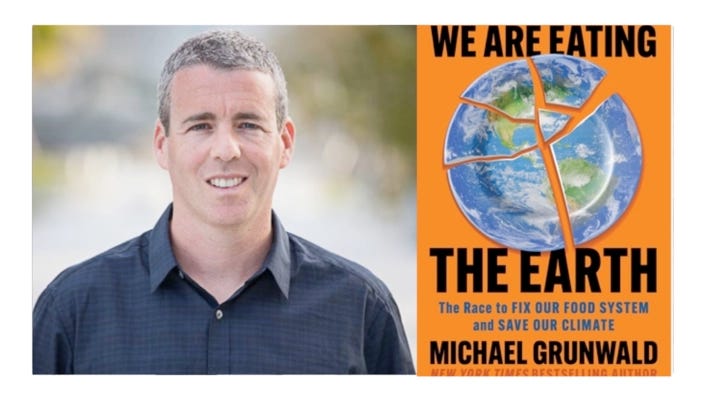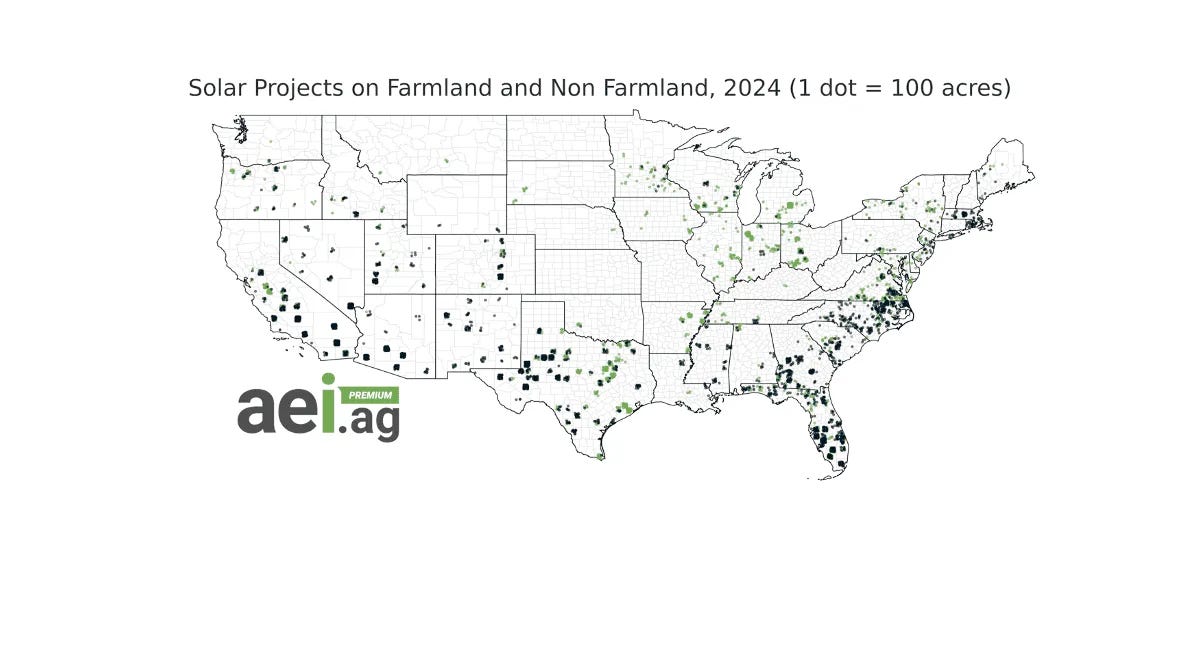Welcome back to The Aggregate Aggregation, our weekly roundup of news and publications that caught our eyes over the last week or so. You can read Volume 14 here.
Let’s make it a conversation! Let’s start the discussion in the comments.
Digging Deep: Factory Farming for the Future?
Michael Grunwald has been taking the media world by storm, and it’s no surprise: the journalist and author’s new book, “We Are Eating the Earth,” was published on July 1. Grunwald’s December Op-Ed in the New York Times advocated for the necessity of industrial, factory farming to “feed the world” elicited a strong and controversial response. This argument formed the foundation of the “sustainable intensification” debate we highlighted in last week’s Aggregation. Grunwald’s latest Op-Ed, also in the New York Times, “Democrats Can Finally Stop Pandering to Farmers,” takes another, equally provocative stance, this time opposing the very subsidy norms that promote America’s industrial-scale food system. Grunwald explored his perspective and the main arguments of his book with Tom Philpott, sustainable food and agriculture journalist, on the most recent episode of “Unconfined,” a podcast from Johns Hopkins Center for a Livable Future.
There’s a lot to unpack here, especially from the agroecological perspective. What are your thoughts on agricultural intensification? Do factory farms have any role to play in a sustainable food future?
Tell us your thoughts in the comments!
Surface Level
🇺🇸USDA Reorganizes - and Ag Groups React
USDA reorganization will move most of its Washington staff ‘closer to’ farmers (Politico). Agriculture Secretary Brooke Rollins is closing several D.C.-area buildings but notably will not pursue a large-scale reduction in force.
Outcry as US agriculture department to cut salaries and relocate staff (The Guardian). Thousands of employees at the US Department of Agriculture will be forced to take salary cuts and relocate out of the Washington DC area, as part of a major restructuring that experts warn will further weaken support for American farmers and complicate wildfire response.
Top Senate Ag Republican 'disappointed' USDA didn’t consult Congress before reorganization (Politico). Sen. John Boozman (R-Ark.) wants to hold a hearing to understand the reasoning behind USDA's decision to close D.C.-area buildings and relocate employees.”
Comment: Without Input from Farmers and Experts, USDA Reorganization Would Close Offices and Lead to Staff Reductions (NSAC). Without input from farmers, the proposed USDA reorganization would close offices and lead to further staff reductions – and ultimately farmers would pay the price.
🏛️More from the Feds
ICE Took Half Their Work Force. What Do They Do Now? (New York Times). Meat processing facility Glenn Valley Foods tried to verify every hire through a federal system. After a raid, the company is wondering how it can keep going.
Release: Bipartisan Senate Bill Boosts Local Farmers and Expands Access to Healthy Food for Families (NSAC). On Friday, July 18, Senators Jack Reed (D-RI) and Jim Justice (R-WV) introduced the Strengthening Local Food Security (SLFS) Act of 2025 (S. 2338). The SLFS Act would catalyze new market opportunities for local farmers and food businesses while providing nutritious foods to communities in need. The National Sustainable Agriculture Coalition (NSAC) applauds Senators Reed and Justice for offering a bipartisan solution that readies producers with reliable markets, allowing them to invest and expand their operations… The Supporting Local Food Systems Act would create local channels that allow for small, mid-size, and beginning farmers to successfully secure contracts in federal nutrition programs.
If You’re a Farmer, NASA Wants a Word (Offrange). Contrary to popular belief, NASA is not just in the business of stargazing and Mars missions. In addition to their satellites that keep tabs on the cosmos, the space agency mans an entire fleet of Earth-facing satellites. These orbiting instruments collect enormous amounts of data on water cycles, weather patterns, vegetation, nitrogen content, and much more. The data NASA can record from these satellites has become so specific that it can weigh in on farm-level decisions.
Is MAHA losing its battle to make Americans healthier? (Vox). Banning food dye is inconsequential when environmental pollution is killing us.
👀Everything else that caught our eyes
José Andrés: The World Cannot Stand By With Gaza on the Brink of Famine (New York Times). “We are far beyond the blame game of who is the more guilty party. We don’t have the time to argue about who is holding up the food trucks. A starving human being needs food today, not tomorrow.”
Dairy Farmers Can Implement and Earn from Sustainability Practices (Morning Ag Clips). Thanks to a new partnership, dairy producers will soon have additional options for achieving and marketing verified greenhouse gas (GHG) reductions from on-farm sustainability practices. The National Milk Producers Federation (NMPF), California Dairies, Inc., and Athian announced they have signed a memorandum of understanding (MOU) to develop a “carbon intensity” protocol supported by the FARM Environmental Stewardship (ES) Program, which seeks to define, quantify and verify how production efficiencies and new practice adoption contribute to positive environmental outcomes.
Turning Food Waste Into Biodegradable Plastic (Morning Ag Clips). Imagine if even a fraction of our food waste could be turned into biodegradable plastic — solving two problems and making our planet healthier in the long term. A team at Binghamton University, State University of New York is doing pioneering research on this idea, and they recently published a paper in the journal Bioresource Technology offering fundamental findings for any company interested in scaling up the process.
Agricultural Outlook 2025-2034 (Morning Ag Clips). Production and calorie intake of animal-source products are expected to increase as incomes rise in middle-income countries, but further increases in food production through improvements in agricultural productivity will be necessary to reduce under-nourishment and agricultural greenhouse gas (GHG) emissions at a global level, according to a new report released today by the Food and Agriculture Organization of the United Nations (FAO) and the Organisation for Economic Co-operation and Development (OECD).
New Report Sizes Up Solar Power’s Footprint On US Farmland (Morning Ag Clips). As the United States continues to reshape its energy portfolio, questions are mounting about the potential effects on agriculture. A new report by Agricultural Economic Insights (AEI.ag) outlines the total acreage that has shifted from farmland to solar production. Key insights from the report – and the implications for the farm economy in 2025 and beyond – will be discussed during a free webinar on August 8, 2025 at 12 pm eastern.
What did we miss? Drop a link to your favorite story of the week (or month, or year) in the comments. Tell us why it resonated with you!
What we’re reading
A list of sources the editors at The Aggregate check regularly for our agroecology+ news.





Thanks for thinking Kyle. I read that nyt piece "ICE took half their work force" and highly recommend it, fascinating.